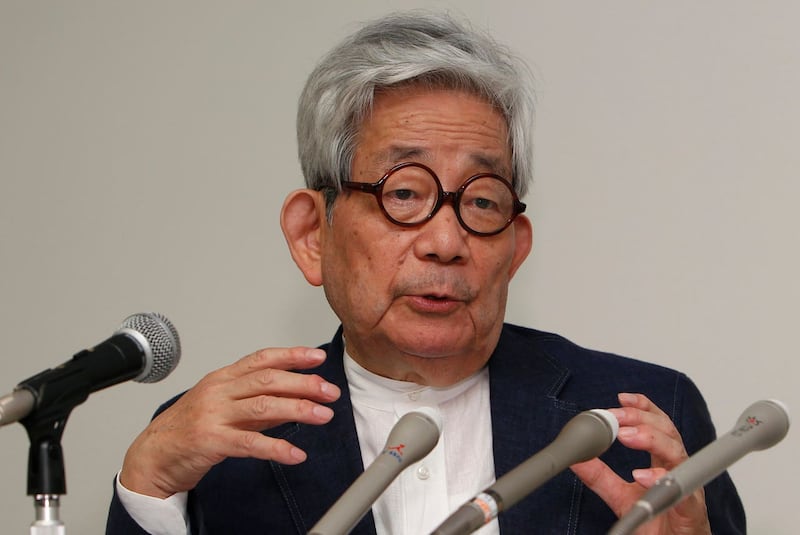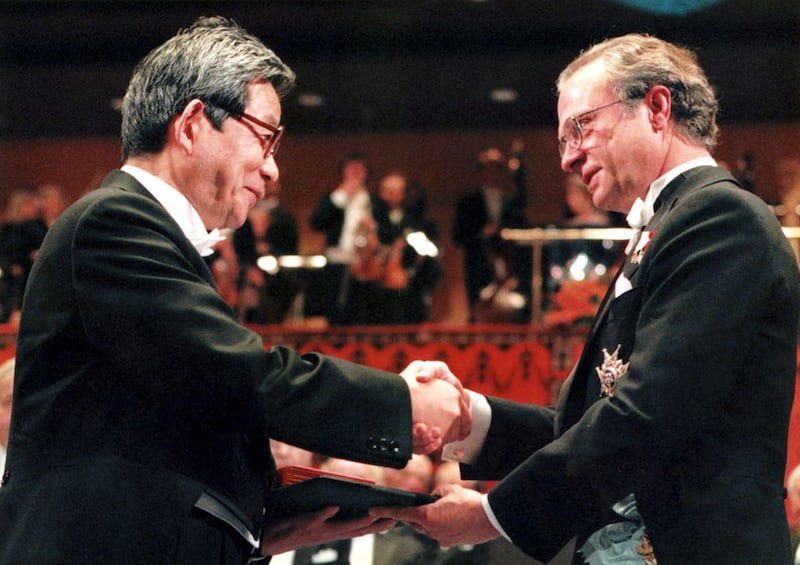Nobel literature laureate Kenzaburo Oe, whose darkly poetic novels were built from his childhood memories during Japan’s post-war occupation and from being the parent of a disabled son, has died aged 88.
His publisher Kodansha said Oe had died of old age on March 3.
The publisher did not give further details about his death and said his funeral had been held by his family.
In 1994, Oe became the second Japanese author awarded the Nobel Prize in Literature.
The Swedish Academy cited the author for his works of fiction, in which “poetic force creates an imagined world where life and myth condense to form a disconcerting picture of the human predicament today”.

His most searing works were influenced by the birth of Oe’s mentally disabled son in 1963.
A Personal Matter, published a year later, is the story of a father coming to terms through darkness and pain with the birth of a brain-damaged son.
Several of his later works have a damaged or deformed child with symbolic significance, with the stories and characters evolving and maturing as Oe’s son aged.
Hikari Oe had a cranial deformity at birth that caused mental disability. He has a limited ability to speak and read but has become a musical composer whose works have been performed and recorded on albums.
The only other Japanese writer to win a Nobel in literature was Yasunari Kawabata in 1968. Sir Kazuo Ishiguro, who won the prize in 2017 and was born in Nagasaki, has British citizenship, having moved to the UK when he was five.
Despite the outpouring of national pride over Oe’s win, his principal literary themes evoke deep unease in the country. A boy of 10 when the Second World War ended, Oe came of age during the American occupation.

“The humiliation took a firm grip on him and has coloured much of his work. He himself describes his writing as a way of exorcising demons,” the Swedish Academy said.
Childhood wartime memories strongly coloured the story that marked Oe’s literary debut, The Catch, about a rural boy’s experiences with an American pilot shot down over his village.
Published in 1958, when Oe was still a university student, the story won Japan’s prestigious Akutagawa prize for new writers.
Oe, the third of seven children, was born on January 31 1935, in a village on Japan’s southern island of Shikoku. At the University of Tokyo, he studied French literature and began writing plays.
The academy noted that Oe’s work has been strongly influenced by Western writers, including Dante, Poe, Rabelais, Balzac, Eliot and Sartre.
But even with those influences, Oe brought an Asian sensibility to bear.
In 2021, thousands of pages of his handwritten manuscripts and other works were sent to be archived at the University of Tokyo.








